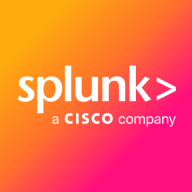

Splunk and ArcSight Logger compete in the field of log management and security information. Splunk appears to have the upper hand due to its integration capabilities and ease of use noted by users.
Features: Splunk offers comprehensive log management, fast search capabilities, and schema-on-read technology. Users value its scalability and ease of integration with diverse data sources. ArcSight Logger is recognized for robust log collection, real-time searching, and extensive security features.
Room for Improvement: Splunk users seek a more intuitive interface and better integration, especially with cloud solutions. There's also feedback on reducing complexity and enhancing search functions. ArcSight Logger users desire improved user interfaces, enhanced threat detection, and integration with non-standard logs.
Ease of Deployment and Customer Service: Splunk provides flexible deployment options across various environments, supported by knowledgeable staff and a strong user community. Users mention a need for quicker support response times. ArcSight Logger, mainly deployed on-premises, reportedly benefits from solid support but could improve in responsiveness and technical guidance.
Pricing and ROI: Splunk's pricing is based on data ingestion volume and is considered steep, though justified by its features and business value. ArcSight Logger is described as having high license costs that are sometimes challenging to manage but justified for its robust capabilities.
The documentation for Splunk Enterprise Security is outstanding. It is well-organized and easy to access.
We couldn't calculate what would have been the cost if they had actually gotten compromised; however, they were in the process, so every investment was returned immediately.
On average, my SecOps team takes probably at least a quarter of the time, if not more, to remediate security incidents with Splunk Enterprise Security compared to our previous solution.
We provide pre-implementation, implementation, and post-implementation support.
We have paid for Splunk support, and we’re not on the free tier hoping for assistance; we are a significant customer and invest a lot in this service.
I have had nothing but good experiences with Splunk support, receiving timely and helpful replies.
We've had great customer success managers who have helped us navigate scaling from 600 gigs to 30 terabytes.
We currently rely on disaster recovery and backup recovery, which takes time to recover, during which you're basically blind, so I'm pushing my leadership team to switch over to a clustering environment for constant availability.
It is one of the things that separates it from other tooling, and if not, it is the most scalable solution out there.
They struggle a bit with pure virtual environments, but in terms of how much they can handle, it is pretty good.
They test it very thoroughly before release, and our customers have Splunk running for months without issues.
Splunk has been very reliable and very consistent.
We need more SMEs, and there is no mechanism to tell us about indexer or search head issues.
Splunk does much more than SIEM, including log analysis, user behavior analysis, threat intelligence, and customer behavior analysis.
Improving the infrastructure behind Splunk Enterprise Security is vital—enhanced cores, CPUs, and memory should be prioritized to support better processing power.
Splunk Enterprise Security is not something that automatically picks things; you have to set up use cases, update data models, and link the right use cases to the right data models for those detections to happen.
For any future enhancements or features, such as MLTK and SOAR platform integration, we need more visibility, training, and certification for the skilled professionals who are working.
I saw clients spend two million dollars a year just feeding data into the Splunk solution.
The platform requires significant financial investment and resources, making it expensive despite its comprehensive features.
I find it to be affordable, which is why every industry uses it.
ArcSight Logger installs on very minimal resources with very few requirements
This capability is useful for performance monitoring and issue identification.
I assess Splunk Enterprise Security's insider threat detection capabilities for helping to find unknown threats and anomalous user behavior as great.
Splunk Enterprise Security provides the foundation for unified threat detection, investigation, and response, enabling fast identification of critical issues.
| Product | Market Share (%) |
|---|---|
| Splunk Enterprise Security | 6.9% |
| ArcSight Logger | 0.9% |
| Other | 92.2% |
| Company Size | Count |
|---|---|
| Small Business | 8 |
| Midsize Enterprise | 10 |
| Large Enterprise | 16 |
| Company Size | Count |
|---|---|
| Small Business | 110 |
| Midsize Enterprise | 50 |
| Large Enterprise | 266 |
Splunk Enterprise Security delivers powerful log management, rapid searches, and intuitive dashboards, enhancing real-time analytics and security measures. Its advanced machine learning and wide system compatibility streamline threat detection and incident response across diverse IT environments.
Splunk Enterprise Security stands out in security operations with robust features like comprehensive threat intelligence and seamless data integration. Its real-time analytics and customizable queries enable proactive threat analysis and efficient incident response. Integration with multiple third-party feeds allows detailed threat correlation and streamlined data visualization. Users find the intuitive UI and broad compatibility support efficient threat detection while reducing false positives. Despite its strengths, areas such as visualization capabilities and integration processes with cloud environments need enhancement. Users face a high learning curve, and improvements in automation, AI, documentation, and training are desired to maximize its potential.
What Are the Key Features of Splunk Enterprise Security?In specific industries like finance and healthcare, Splunk Enterprise Security is instrumental for log aggregation, SIEM functionalities, and compliance monitoring. Companies leverage its capabilities for proactive threat analysis and response, ensuring comprehensive security monitoring and integration with various tools for heightened operational intelligence.
We monitor all Log Management reviews to prevent fraudulent reviews and keep review quality high. We do not post reviews by company employees or direct competitors. We validate each review for authenticity via cross-reference with LinkedIn, and personal follow-up with the reviewer when necessary.